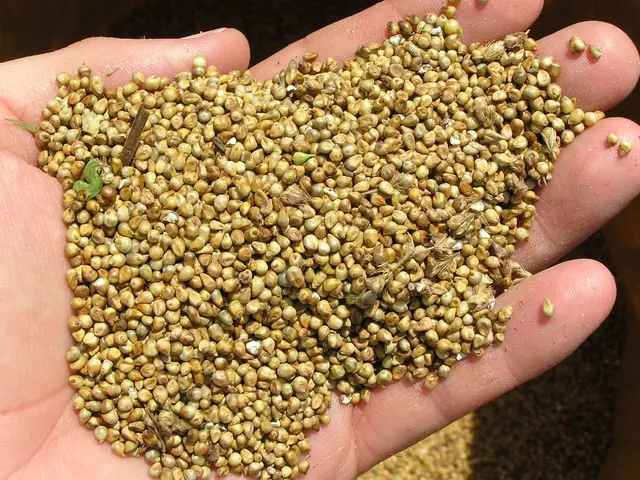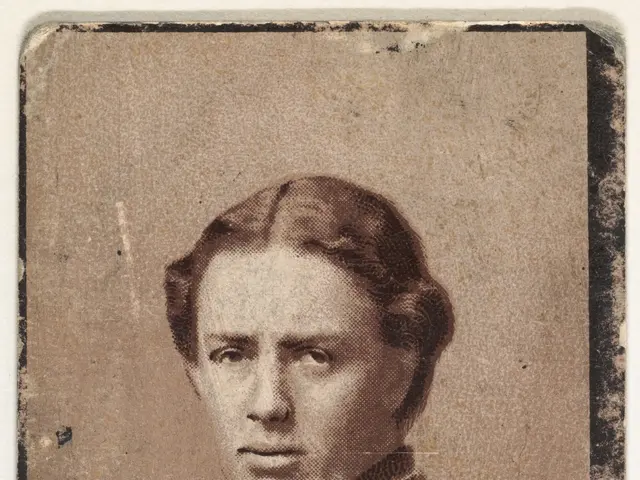Exploring Coffee Consumption: Potential Decrease in Colorectal Cancer Incidence Rates?
New Study Links Regular Coffee Consumption to Lower Risk of Colorectal Cancer Recurrence
The World Cancer Research Fund (WCRF) has revealed that numerous studies suggest a link between coffee consumption and a reduced risk of colorectal and bowel cancer.
The International Journal of Cancer published a recent study in which drinking four cups of coffee daily was associated with a 32% decrease in the risk of colorectal cancer recurrence. The research involved 1,719 participants with colorectal cancer at stages 1 through 3.
Coffee consumption may contribute to this outcome by reducing oxidative stress, promoting the health of gut bacteria, inhibiting the growth of tumors, and protecting against nonalcoholic fatty liver disease. The study also mentions findings that show coffee drinkers had a lower risk of colorectal cancer compared to non-coffee drinkers.
Interestingly, the researchers found that caffeinated coffee could lead to a higher risk of rectal cancer, but not colon cancer, indicating differences in how the body metabolizes the two types of coffee.
Those looking to help prevent colorectal cancer are encouraged to engage in physical activity, eat a nutritious diet, and avoid tobacco and alcohol use.
The WCRF's findings accompany a larger body of research concerning coffee's association with colorectal and rectal cancer risk, as well as its effects on cancer outcomes and survival.
Some large reviews, including those by the International Agency for Research on Cancer (IARC), have found no clear association between coffee intake and increased cancer risk at any body site. In some cases, coffee drinking may actually help reduce the occurrence of certain cancers.
Among colorectal cancer patients, a diet that includes coffee has been recommended for optimizing survival outcomes, with meta-analyses suggesting that consuming coffee, along with whole grains, milk, and dietary calcium, is beneficial. Meanwhile, avoiding excessive alcohol, refined grains, and adopting a sedentary lifestyle is essential to better outcomes.
However, some studies have reported mixed results regarding the association between coffee consumption and the risk of colorectal cancer itself. Current evidence does not support a clear increased risk, and some studies even suggest a protective effect, particularly in relation to endometrial cancer and possibly colorectal cancer.
The study's authors suggest that coffee's protective effects may be due to its antioxidant and anti-inflammatory properties and its role in maintaining a healthier intestinal environment. Coffee may also contribute to a healthy dietary pattern that collectively reduces cancer risk and improves outcomes.
In summary, coffee consumption does not appear to increase the risk of colorectal or rectal cancer and may have protective effects, both through direct biological mechanisms and as part of a healthy lifestyle. For colorectal cancer patients, coffee intake is associated with improved survival, likely due to its role in a broader beneficial dietary pattern.
- The World Cancer Research Fund's studies suggest a link between coffee consumption and a reduced risk of not just colorectal cancer, but also other types of cancer, such as endometrial cancer.
- Oncology research shows that regular coffee consumption may contribute to a healthier intestinal environment, which can help inhibit the growth of tumors and reduce the risk of colorectal cancer.
- In the realm of health-and-wellness, a nutritious diet, physical activity, avoidance of tobacco and alcohol, and optimal consumption of coffee may help prevent colorectal cancer and improve survival outcomes for those diagnosed.
- The science behind medical-conditions like colorectal cancer indicates that a recommended diet for optimizing survival includes coffee, along with whole grains, milk, and dietary calcium, while avoiding excessive alcohol and adopting a sedentary lifestyle is essential to better outcomes.






